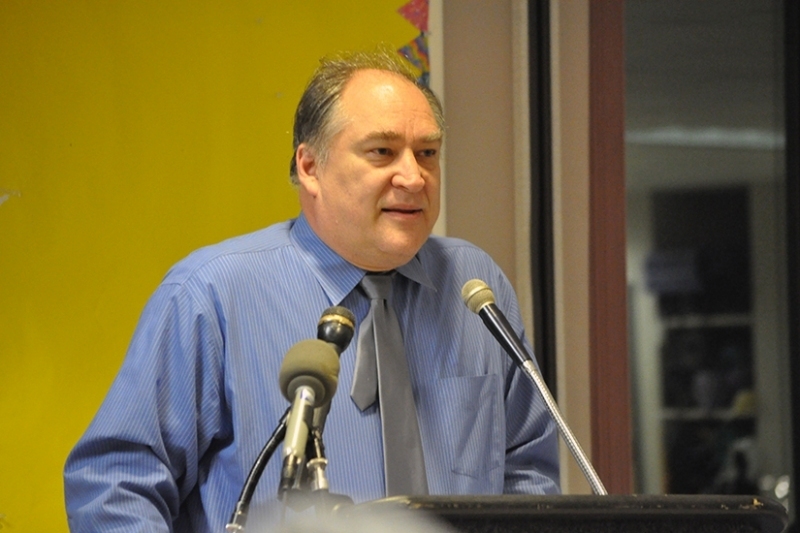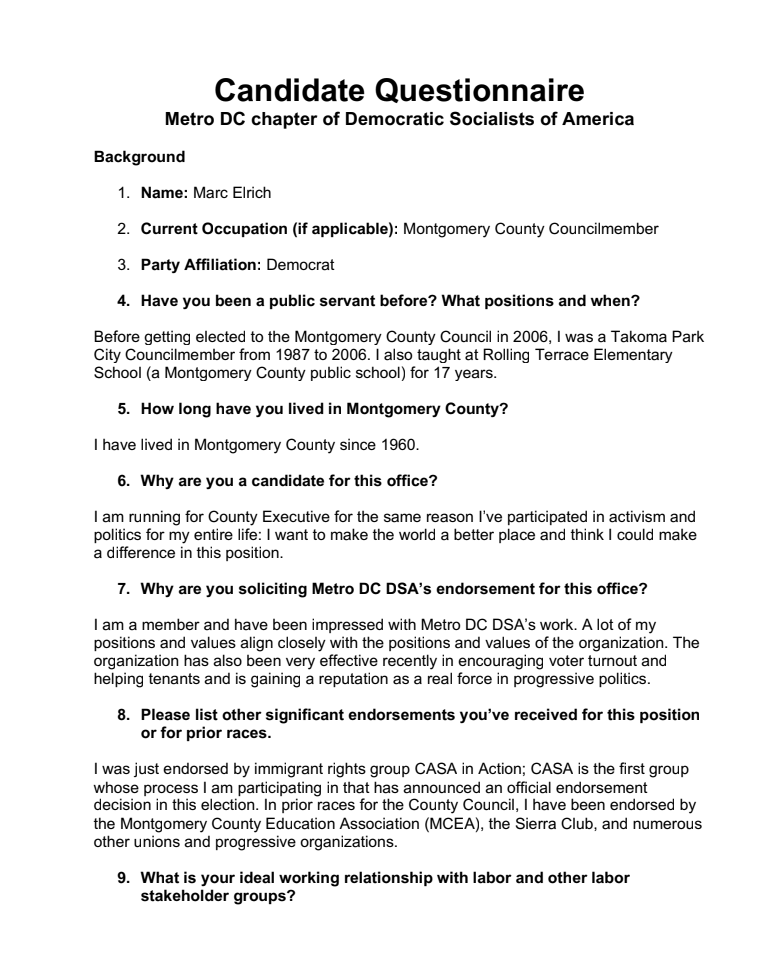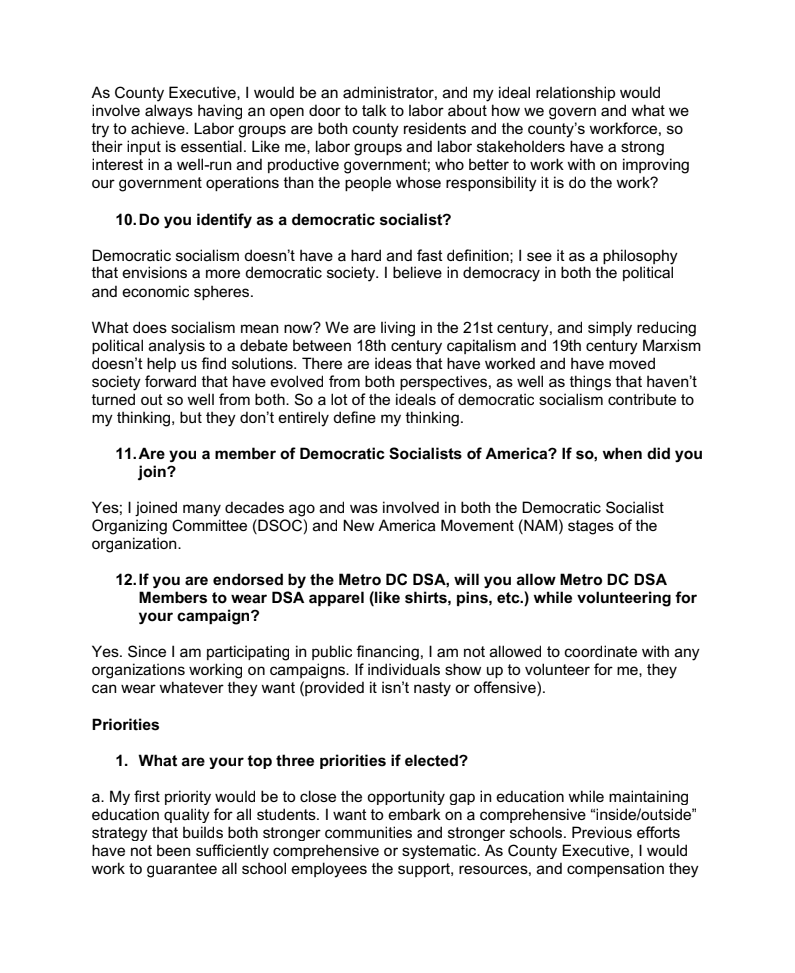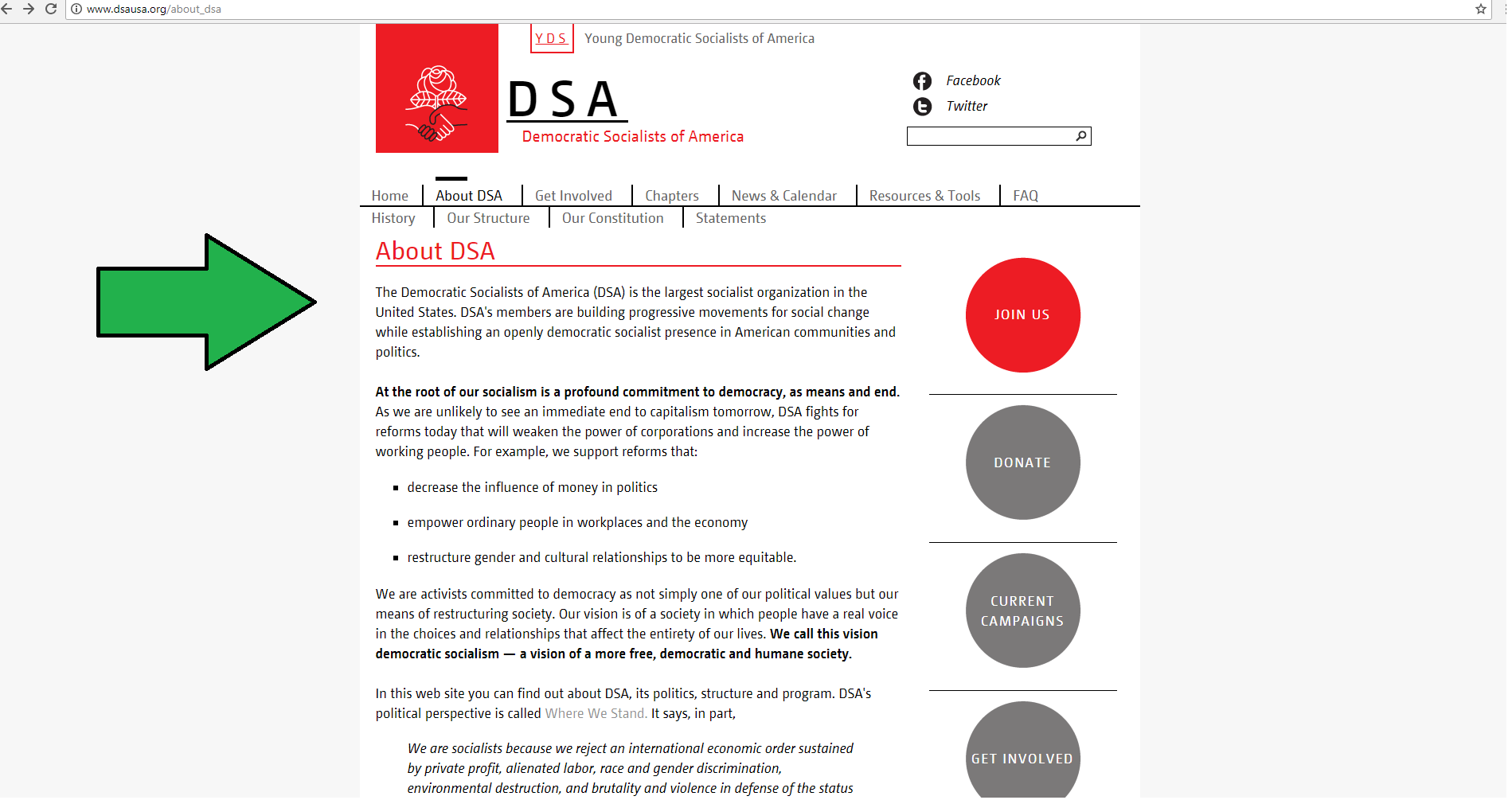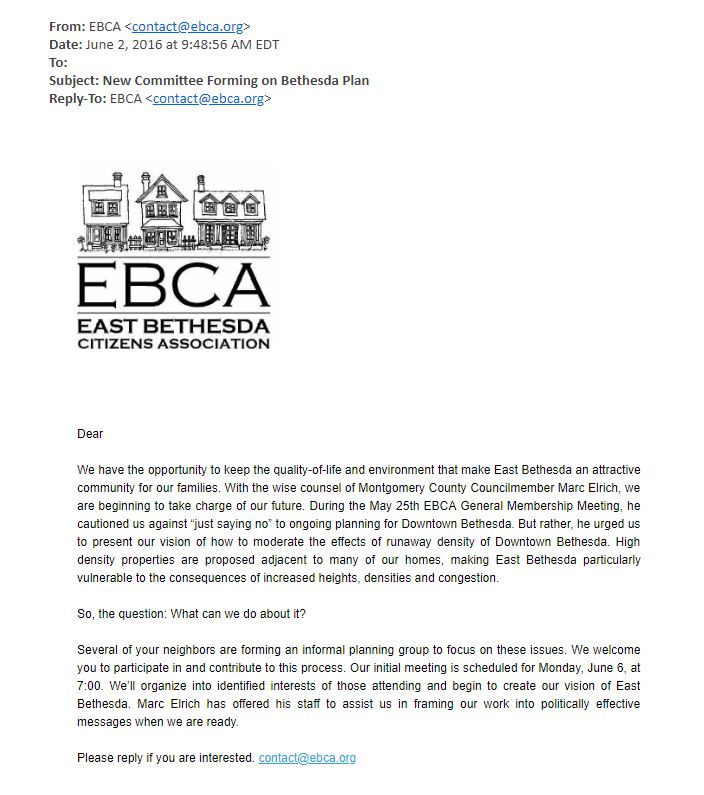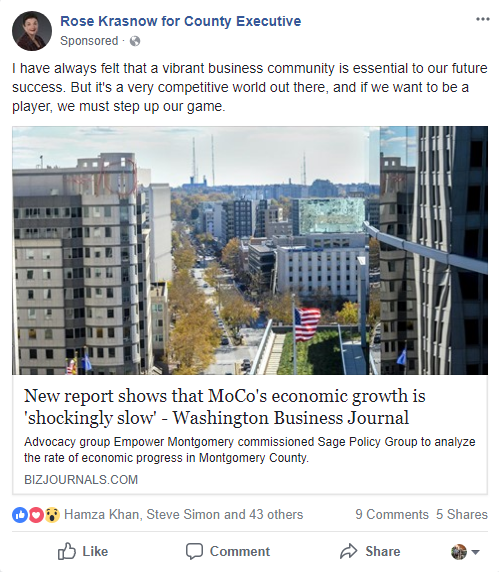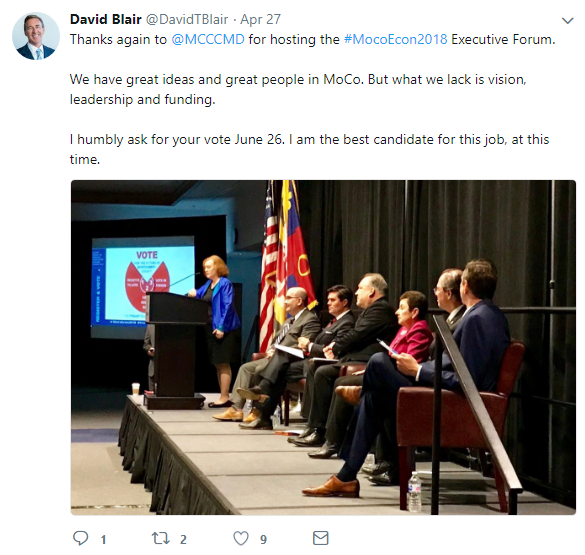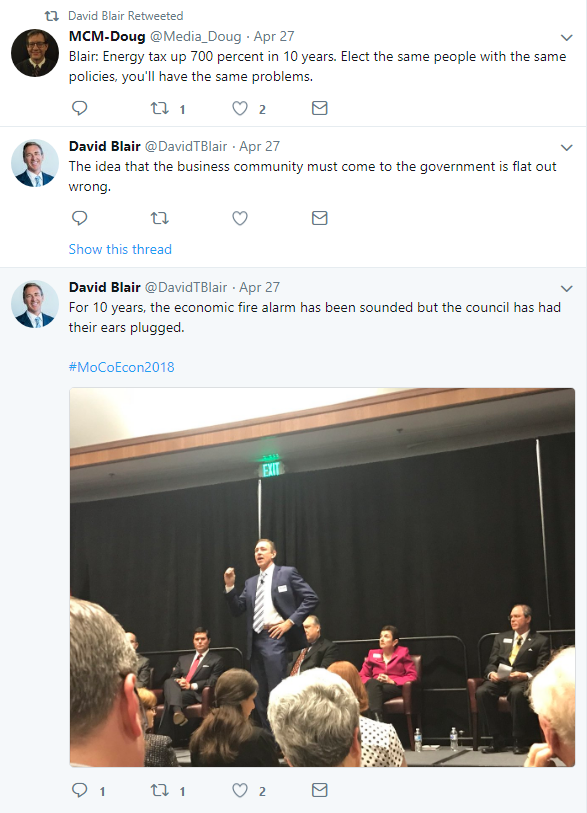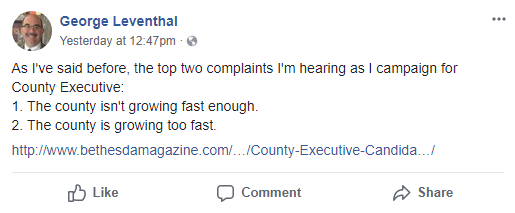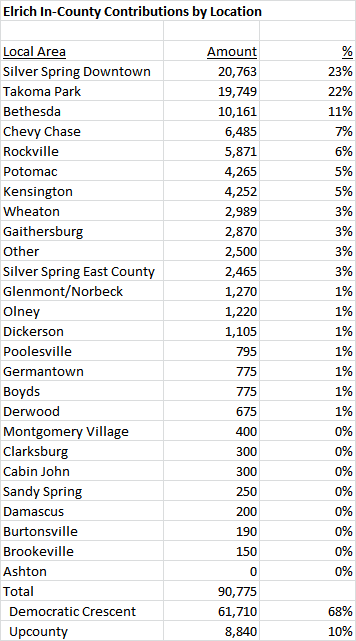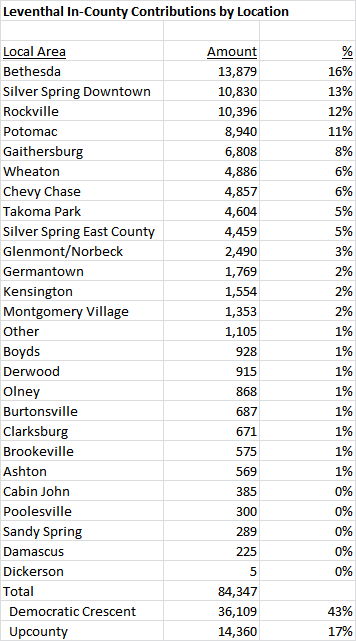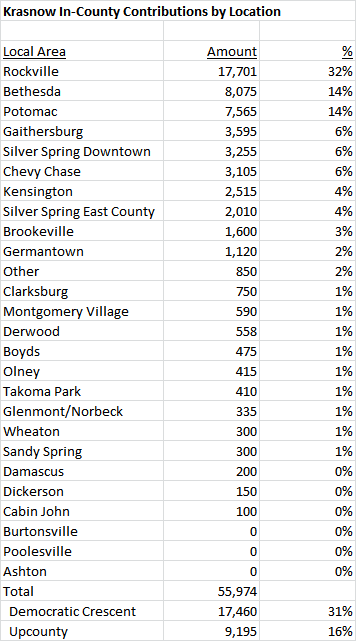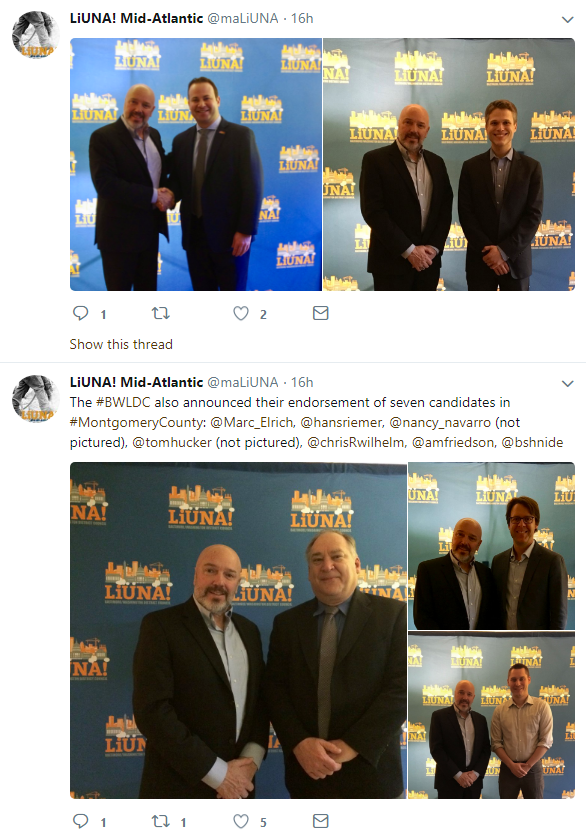After all this time, it still often ends up amazing me how much fracas a single turn of phrase can cause. Adam’s recent comment referring to Marc Elrich as “a decades-long socialist” has been one of those moments.
In many ways, I saw Adam’s description as a stereotype of how many voters will see Marc. Adam has also argued with justification that it’s simply true. Moreover, while it’s tempting to say “labels are for cans,” they are also highly useful shortcuts in identifying political views and general outlook.
The problem here is the way the word “socialism” has been used in American politics. Back in the day of the Soviet Union, well within the lifespan of the bulk of Democratic primary voters, socialism was often used as a synonym for communism. The full name of the USSR, after all, was the Union of Soviet Socialist Republics. Americans rightly reviled this soul-destroying system that murdered millions of people and was imposed on the peoples of Eastern and East-Central Europe after World War II.
However, as Nik Sushka explained on the Seventh State Facebook page:
There is a chasm of difference between the DSA and the way “socialism” is used against people on the left. If you like public schools, public safety, public libraries, public defense, and public transit—including public roads—then you like Democratic socialism so far. If you want public health care and public utilities—including net neutrality—you might desire greater “socialism.”
Can we at least try to have a fair conversation about why these distinctions exist and why a candidate trying to defend his record on supporting business and robust economies might say—hey, stop saying I have a “socialist” business agenda?
I disagree with Marc Elrich on various issues. The liquor monopoly needs to go and Adam isn’t wrong that it’s among the more “socialist” of county policies. But it was created before Marc arrived on the scene and is a legitimate topic for debate. Rent stabilization is also a bad idea, but Marc would be the first to tell you it’s not on Montgomery’s agenda.
Marc also holds many positions that I admire. While the Washington Post wants to cast him as Dr. No, he’s the guy who brought the creation of a BRT system for Montgomery to the agenda. Far more affordable than light rail or heavy rail – we would have saved literally billions of dollars if the Purple Line had been planned this way – it provides a real means to provide a transportation system for Montgomery. In other words, it addresses traffic concerns of existing residents yet also paves the way for additional development and economic growth.
Marc also is known as the guy on the Council who goes around to every neighborhood in the County and listens and talks to people. His argument that infrastructure for schools, police, fire, and so forth should match the pace of new development is seemingly radical to many on the current Council. It’s not to residents.
Ditto on the idea that one needs to be sensitive to the impact of new development on existing neighborhoods. Change will occur but it doesn’t have to mean placing a 20-story building right next to a single-family home in the name of “you can’t stop progress!”
In many ways, I saw Marc and Adam as talking past one another. Marc’s reply struck me as not a denial of being a democratic socialist but as being in the thoughtful vein of “OK, what does this term mean in this day and age, and for how I would govern as county executive” and that he’s practical rather than an ideologue.
Whatever you think of Marc’s views, I see remarkable consistency is the way he presents himself in various forums, questionnaires, and the like. What you see is what you get.

